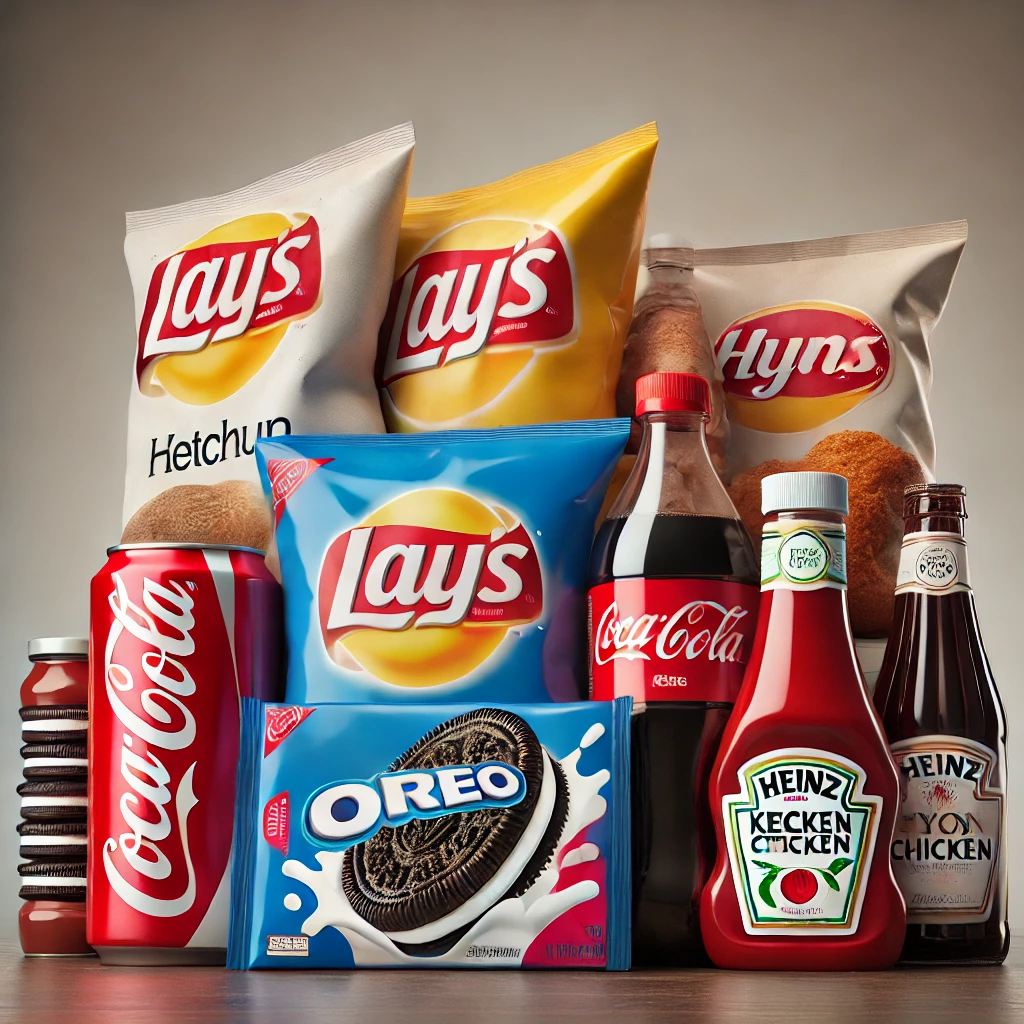The food and beverage industry in the United States is both expansive and influential, driven by some of the world’s largest companies with established reputations for innovation, product diversity, and strong market presence. Here, we present an overview of the top 10 U.S. food and beverage companies based on revenue, brand strength, and market impact.
1. PepsiCo, Inc.
- Headquarters: Purchase, New York
- Revenue: Approximately $86 billion (2023)
- Overview: PepsiCo is a global giant known for its diverse range of beverages and snacks, including iconic brands like Pepsi, Mountain Dew, Lay’s, and Tropicana. Its extensive portfolio across beverages, snacks, and cereals has enabled it to dominate both domestic and international markets. PepsiCo’s commitment to innovation and sustainability has kept it at the forefront of the industry, with a strong focus on healthier product lines and eco-friendly packaging.
2. The Coca-Cola Company
- Headquarters: Atlanta, Georgia
- Revenue: Approximately $44 billion (2023)
- Overview: Coca-Cola is a leader in the beverage sector with a wide array of soft drinks, juices, teas, and waters, including brands like Coca-Cola, Fanta, Sprite, and Dasani. The company has been diversifying into health-conscious products with its acquisitions of brands like Smartwater and Honest Tea. Coca-Cola’s global brand recognition and extensive distribution network contribute significantly to its sustained success.
3. Nestlé USA
- Headquarters: Arlington, Virginia
- Revenue: Part of Nestlé Group, with over $100 billion in global revenue
- Overview: As the U.S. branch of Swiss conglomerate Nestlé, this company offers a broad range of products, from beverages like Nescafé and coffee creamers to frozen foods and pet care items. Nestlé USA’s product innovation in plant-based and nutritional foods aligns with consumer trends toward health and sustainability. Key brands under Nestlé USA include DiGiorno, Stouffer’s, and Gerber.
4. Tyson Foods, Inc.
- Headquarters: Springdale, Arkansas
- Revenue: Approximately $54 billion (2023)
- Overview: Tyson Foods is one of the largest processors of chicken, beef, and pork in the U.S. Known for its meat products, Tyson has expanded into plant-based foods with its Raised & Rooted line. The company is an important player in the American food supply chain and continues to evolve with a focus on sustainability and improving animal welfare standards.
5. Cargill, Incorporated
- Headquarters: Minneapolis, Minnesota
- Revenue: Approximately $165 billion (2023)
- Overview: Cargill is a private American global food corporation involved in agriculture, food, and industrial products. Though not a direct consumer-facing brand, Cargill supplies essential products to various food industries, including oils, sweeteners, and protein products. Its vast agricultural network and investment in sustainable practices make it integral to the global food supply chain.
6. The Kraft Heinz Company
- Headquarters: Chicago, Illinois, and Pittsburgh, Pennsylvania
- Revenue: Approximately $26 billion (2023)
- Overview: Formed from the merger of Kraft Foods and Heinz, this company boasts iconic brands like Kraft, Oscar Mayer, and Heinz. Kraft Heinz has been working to revitalize its brand image by introducing products with simpler ingredients and focusing on more sustainable practices, aiming to align with consumer preferences for transparency and health-conscious options.
7. Mondelez International, Inc.
- Headquarters: Chicago, Illinois
- Revenue: Approximately $31 billion (2023)
- Overview: Mondelez is known for its snack products, including Oreo, Ritz, and Cadbury. The company has a strong global presence and consistently innovates within the snack sector. Mondelez has placed significant emphasis on expanding into the health and wellness segments of snacking, developing products with reduced sugar and healthier ingredients.
8. General Mills, Inc.
- Headquarters: Minneapolis, Minnesota
- Revenue: Approximately $20 billion (2023)
- Overview: General Mills is a major player in packaged foods, with brands like Cheerios, Yoplait, and Haagen-Dazs. Known for its cereals, snacks, and yogurt, General Mills has diversified into pet foods and is investing heavily in eco-friendly practices and product innovation to meet the rising demand for sustainable and plant-based products.
9. Mars, Incorporated
- Headquarters: McLean, Virginia
- Revenue: Approximately $45 billion (2023)
- Overview: While Mars is famous for its candy brands like M&M’s, Snickers, and Twix, the company has a diverse portfolio that includes pet care and beverages. Mars’ commitment to sustainability and responsible sourcing practices, especially in its cocoa supply chain, has been a cornerstone of its strategy, and it continues to expand its offerings to meet consumer demands for ethical products.
10. Conagra Brands, Inc.
- Headquarters: Chicago, Illinois
- Revenue: Approximately $12 billion (2023)
- Overview: Conagra is known for frozen and packaged foods with brands like Healthy Choice, Slim Jim, and Marie Callender’s. The company has adapted to changing consumer preferences by introducing plant-based and healthier options across its product lines. Conagra’s commitment to product innovation and sustainability makes it a competitive force in the packaged foods sector.
Conclusion
The top food and beverage companies in the United States are industry powerhouses, with diverse product portfolios and strong commitments to innovation, health, and sustainability. Each company on this list has not only shaped consumer preferences in the U.S. but has also influenced global food trends. As consumer expectations shift towards health-conscious and eco-friendly products, these companies continue to evolve, investing in sustainable practices and transparent business models. The combined influence of these companies will likely play a significant role in shaping the future of the food and beverage industry.




